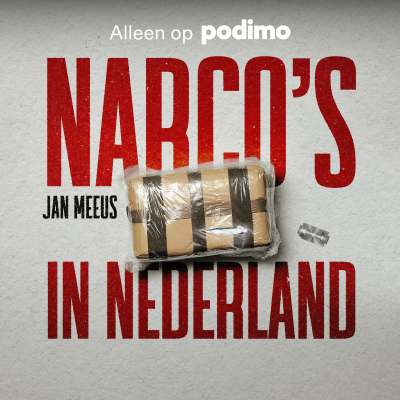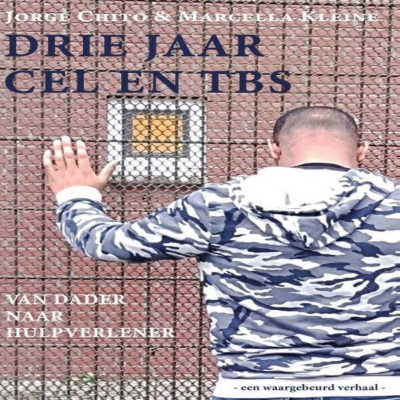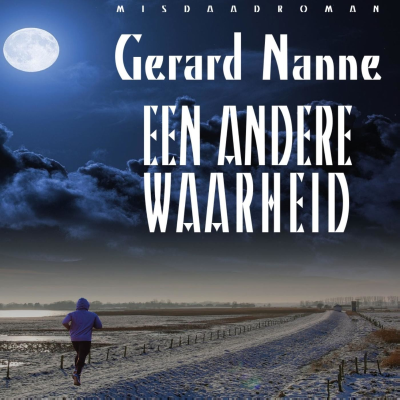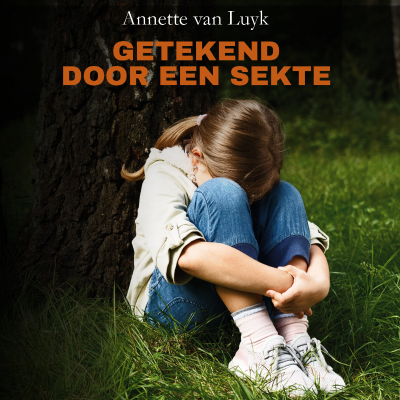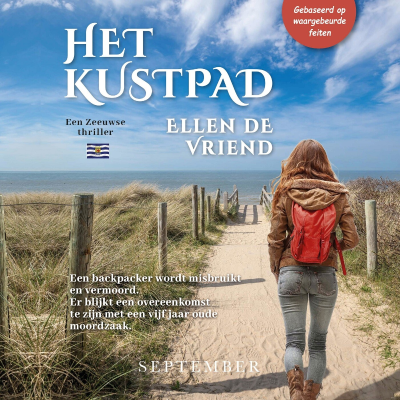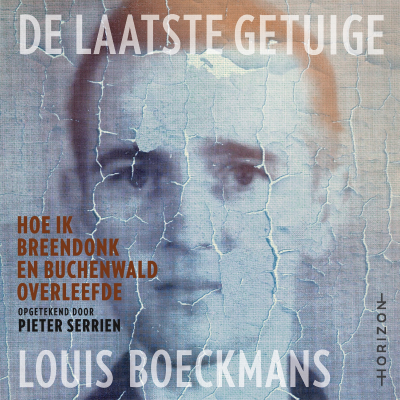
TRIBUTO A PETER CARTER
Engels
Education
Tijdelijke aanbieding
2 maanden voor € 1
Daarna € 9,99 / maandElk moment opzegbaar.
- 20 uur luisterboeken / maand
- Podcasts die je alleen op Podimo hoort
- Gratis podcasts
Over TRIBUTO A PETER CARTER
Este Podcast pretende recuperar los episodios que Peter Carter subió durante años a su inigualable podcast "listen-to-english" ya desaparecido. Iré subiendo los podcast que conseguí descargar antes de que su página desapareciera. Copio de Quiero MIlk y su página de tributo: This is a tribute to Peter Carter. Peter Carter is (or was, because he’s been missing for a few years) from Birmingham. I know that he had a daughter who was 16 (in 2010), but not much more… Unfortunately, his latest episode was posted on the 31st of January 2013. Four years later all we know is that his web and all the extraordinary information on it are gone. What happened to Peter Carter? Not sure yet, but I’m going to find out. So far all I can do is to gather together all his podcasts and share them with you (easier said than done). To preserve his legacy is the best tribute I can pay to him. Peter Carter posted 289 episodes on his website called www.listen-to-english.com. In my opinion, Peter Carter is the best podcaster ever. I’ve learnt so many thing thanks to him that I don’t know to return the favour. His super educational podcasts were free, and not also I improved my listening skills a lot, but also I learnt a lot of interesting things about: Lady Godiva, Stonehenge, Peter Rabbit, Golliwogs, how to say nothing, how much the Queen costs, the Parliament, rhubarb, the fifth of November, good manners, bank holidays, Pancake day, Llanfairpwllgwyngyll, Topaz McGonagall (the worst poet ever in the English language), The Great British Donkey Race, painting the Forth Bridge…
Alle afleveringen
50 afleveringenCharlotte
Charlotte Posted by Peter on 26 April 2006 Today I would like to introduce to you a poem by Allan Ahlberg. Allan is a well known writer of poems for children. He used to be a school teacher, and he understands the things that interest children, and also the way that children speak. The poem is called “Talk us through it, Charlotte”, which means “Tell us about it, Charlotte, one bit at a time starting at the beginning.” So Charlotte explains what happened. She went to a football match to watch her brother play. But his team was a man short – they only had 10 players instead of 11. So they asked her to play. They told her to stay on the wing, that is to play at the edge of the field. She says that for an hour no-one passed the ball to her. But then the ball bounced towards her; she ran with it past one player, then another. She ignored her brother shouting to her to pass the ball to him, but carried on, tricked the goalkeeper (the goalie) and scored “the winner”, that is the goal that won the match. The manager said she was very good and asked her to come to training next Tuesday. Charlotte comes from the Black Country, the old industrial area to the west of Birmingham. She speaks with a Black Country accent, and some of her English is not standard English. She says “they was” instead of “they were”, and “I run” instead of “I ran”. Sometimes she leaves out the first few words of her sentences, for example “Only there to watch me brother” instead of “I was only there to watch my brother.” Now, please click on the link on the podcast website. It will take you to a page in the children’s poetry archive, where you can read the poem. If you click on the little green arrow you can hear Allan Ahlberg himself reading it.
Charity Shops
Charity Shops Posted by Peter on 3 October 2007 In many towns in England, the main shopping street is called “High Street”. We often use the expression “high street” to mean the main shopping street of any town or suburb, no matter what its real name is. Or we talk about “the high street” to mean shopping facilities generally, particularly shops that people use every day like food shops. So, when a newspaper writes about “high street prices”, for example, they just mean the prices of everyday things that people might buy in high street shops. And we often complain that high street shops are the same boring shops everywhere in England. Many high street shops are branches of big national chains. For example, there is Next, and Marks and Spencer, which sell clothes; and WH Smith, which sells stationery, books and magazines; and Boots, the chemists; and Woolworths, where you can buy almost anything, provided that it is cheap and made of plastic. You can find these shops in most high streets in England. In most high streets, too, you will find one or more charity shops. Charity shops are shops which are run by charities to help them raise money. People bring things that they no longer want, and the charity shop sells them to other people. What sort of things? Clothes, shoes, hats, bags, children’s toys, books, CDs, crockery, kitchen things, mugs commemorating the wedding of Charles and Diana – all sorts of things, in other words. The first charity shop was set up in 1947. Since then, charity shops have become very successful in England. There are over 7000 of them altogether. They raise well over £100 million each year for the charities that own them. They are cheap to run. Often they occupy shop premises that no-one else wants, and where the rent is low. Most of their staff are volunteers. The shops do not have to pay tax on their profits. The charity OXFAM, which helps people in developing countries, has the best-known charity shops in England, but there are many others, including shops run by small local charities. I enjoy visiting charity shops. They are all different, unlike the big high street shops. There is always a chance that I will find something really interesting or unusual. Here are some of the things I have learned about charity shops: >> they have a special smell, of old clothes. >> women are much more likely than men to give used clothes to a charity shop, and more likely to buy clothes there. >> people who bought CDs of really bad bands ten years ago eventually give the CDs to a charity shop. >> if you go to a charity shop in an area where well-off people live, you can often find expensive designer clothes at bargain prices. >> it always takes three charity shop volunteers to operate the till. Finally, here is another way in which charity shops are really useful to busy families in modern Britain. Your children arrive home. They tell you proudly that they are in a play at school. And they need costumes – before tomorrow. No problem. Give them £5 and send them to the nearest charity shop. They will come back with some amazing rubbish. They will take it to school next day to wear in the school play. Everyone will say they look wonderful. And when they come home again – why, you can take it all back to the charity shop, of course. Photo of charity shop window by World of oddy/flickr. There is a mug commemorating the wedding of Charles and Diana at the front of the window! Picture of Oxfam bookshop by Gary Charity Shops Posted by Peter on 3 October 2007
Changing your name
Changing your name Posted by Peter on 24 November 2009 Pudsey Bear (the real one!) Every year the BBC asks its TV viewers to give money to a special appeal called Children in Need. The money is used to help charities which work with sick or disadvantaged children. The last Children in Need day was last Friday. For the whole evening, BBC television had programmes which asked people to give money to Children in Need, and appearances by celebrities who told us about all the wonderful things that Children in Need was doing, and news about special fund-raising events all over the country. Children in Need has been very successful. Since 1980 it has raised over £500 million to help needy children. Children in Need has a mascot. He is a large yellow bear called Pudsey. There is a picture of him on the website and, I hope, on your iPod screens. Pudsey has a bandage over one eye. Has he injured his eye? Or perhaps he is a pirate? I am not sure. Last year, a woman who lives in Wales, called Mrs Eileen de Bont invented a new and interesting way to raise money for Children in Need. She asked people to sponsor her to change her name – that is she asked them to promise to give money to Children in Need if she changed her name. She even allowed her sponsors to choose her new name. And the name they chose was – Pudsey Bear. In Britain, we often complain that we do not live in a free country any more. There are too many rules and regulations which prevent us from doing what we want to do. But in one area we still have perfect freedom – we can call ourselves by whatever name we want. There is a simple legal process called a Deed Poll which allows anyone who wants to change their name to whatever new name they like. Over 50,000 people change their name by Deed Poll every year. Many of these changes are connected to marriage or divorce. For example, when people get married they may decide that they want to use the woman’s family name (or surname) instead of the man’s name. Or they may decide to use both names . When John Smith and Wendy Brown get married they might want to be called Mr and Mrs Smith-Brown. And then, a few years later if their marriage breaks down, they might want to go back to their old names. These changes of name are not a problem in Changing your name Posted by Peter on 24 November 2009 Britain. John and Wendy just need to fill in a few legal forms, and they have new names. Naturally, a few people change their names for more frivolous reasons. Last year a football fan in Scotland changed his name to Motherwell Football Club. Another young man thought he would be more attractive to the girls if his name was Elvis Presley. And the former Mr Daniel Westfallen is now called Mr Happy Adjustable Spanners. These people are mad, of course, but in Britain you are free to be mad if you want. So, it was no problem for Mrs de Bont to fill in the forms to change her name to Pudsey Bear . No problem to get her employer, the gas and electricity companies, her bank and the tax people to change her name in their records and computer systems. Then she applied for a new passport. She received a bureaucratic letter from the Passport Office saying, no, they could not give her a passport with the name Pudsey Bear because …well, because it was silly. Mrs de Bont (or Mrs Pudsey Bear as we must now call her ) said that her sponsors had paid a lot of money to Children in Need for her to change her name; and that everyone now called her by her new name, and even her children called her Mummy Bear. Mrs de Bont (sorry, Mrs Bear) then told the newspapers what had happened, and for a few days we could read all about it. The newspapers were on Mrs Bear’s side (I got it right that time). The Guardian, for example, roared “The right to call yourself whatever name you please is one of the small but great British liberties. Who do the passport people think they are? If a citizen can change her name, she must have a passport in that name too.” And then we heard no more. The story disappeared from the newspapers. So we never heard whether Mrs Bear or the passport people won. Perhaps you can help. If you meet any British tourists in your country, ask to see their passports. And if you find a passport with the name Pudsey Bear on it, send an e-mail to Listen to English. In your country, are you able to change your name if you want to? And have you ever thought that it would be wonderful to have a new name? Please put a comment on the Listen to English website to tell us about it.
Changing the time
A summer evening. Will we enjoy them more if we change our time? Photo by WhiteGoldWielder/flickr Last Sunday, in the early hours of the morning, a whole hour disappeared. It was the beginning of summer time. Every year, at the end of March, we change the time on our clocks and watches. We move the time forward by one hour, so that, for example, 1.00 am becomes 2.00 am. It is light for longer in the summer than in the winter. However, extra daylight early in the morning is not much use to us, because we are still in bed. We want the extra daylight in the evening, when we can go outside and dig the garden or take a picnic to the park. By changing the clocks, we move an hour of summer daylight from the morning to the evening, when we can enjoy it more. In winter, therefore, we have winter time, or Greenwich Mean Time (GMT). In summer we have summer time, or British Summer Time (BST) as it is officially called. Instead, we could of course all get up earlier in the morning during the summer. We could all start work, or school, or college, an hour earlier. And then we could go home an hour earlier as well. But we English do not like getting up early in the morning. In Germany, many people arrive at work at 7am or even earlier. We English are more sensible. We stay in bed. And it would be difficult to get everyone to agree to start work an hour earlier. So we change the time on our clocks instead. During the Second World War, we had a sort of double summer time – we moved the clocks forward by one hour in the winter and by two hours in the summer. We did this to save energy and increase productivity in the factories. But at the end of the war, we went back to the old Changing the time Posted by Peter on 30 March 2010 winter and summer times. Every few years, for the last 50 or 60 years, we have had a national debate in the press and in Parliament about permanently changing our time, in the same way that we did during the war. A new campaign to change our time has just started. It is called “Lighter Later” and you can read about it on its website. “Lighter Later” says that if we move our time forward by an hour, it will solve almost all the problems of the world: >> it will save energy, because we will not need to use so much electricity for lighting in the evenings. >> our carbon dioxide emissions will fall. >> there will be fewer road accidents. >> it will be good for tourism, and help to create jobs in the leisure and tourism industries. >> it will be easier for us to play sport or go jogging in the evenings, so we will all be fit and lose weight. >> it will reduce crime. >> it will make everyone happy, rich and famous. OK, I invented the last one about “happy, rich and famous”. But it is clear that there are some very strong arguments for changing our time by moving the clocks forward by another hour for the whole year. In particular, it would be a cheap and easy way of reducing our carbon dioxide emissions. In the past, two groups of people have argued against changing our time. The first group is people who have jobs where they have to start work very early in the morning. Farmers, for example, may need to milk their cows very early. If we changed the time, the farmers say, they would have to start work in the dark all year round, even in the middle of summer. The second group is people who live in Scotland. Scotland is further north than England, and this means that there is less daylight in the winter than in England. The Scots argue that changing the time would mean that Scottish schoolchildren would have to go to school in the dark for several months during the winter. What will happen this time? Will we finally change our time? Or will the old objections win? There are some signs that the campaign for a change in our time may succeed. There is an urgent need to find ways of reducing our carbon dioxide emissions. The organisation which represents British farmers now says that it is “neutral” about making the change. And the Scots? Well, British politics has changed in recent years. Scotland now has its own Parliament and its own government. Many people in England now say that the Scots can sort out their own problems, but they cannot block changes which are good for England. To finish, I should tell you that no-one has told the British weather that the clocks have gone forward and it is now officially summer time. The weather forecast for tomorrow is for snow in many places.
Catch
Catch Posted by Peter on 2 March 2010 What a catch! Photo by RXAphoto/Flickr We are going to catch things in this podcast, and – yes – there will be a new phrasal verb as well – “to catch up with”. Like many common English verbs, “catch” is irregular. The past tense of “catch” is “caught”. So, I catch, I caught, I have caught. If you look at the picture on the website, or on your iPod, you will see what “catch” means. Someone has thrown a ball in the air. The little dog has run after the ball. He has jumped in the air with its mouth open. He wants to catch the ball in his mouth. So, “to catch” means to stop or hold something which is moving, like a ball which someone has thrown. Here are some other things you can catch: >> a cat catches a mouse. >> a fisherman catches fish. >> the police catch a criminal. And, of course, we often use “catch” in a figurative way. For example: >> you can catch a train, or a bus, or a plane. >> you can catch flu, or some other infectious disease. >> in the photo on the website, the photographer has caught the exact moment when the dog jumps in the air to catch the ball. Now for our phrasal verb – “to catch up”. We can say “catch up with someone” or “catch someone up”. Imagine that you are running in a race. The leading runner is about 20 meters in front of you. If you run really fast, perhaps you can catch the leader up. Then you will be running beside the leader, and you might even win the race. And if the runners behind you run really hard, they may be able to catch up with you. This sounds very energetic, so let us instead join Kevin and George in their normal Saturday Catch Posted by Peter on 2 March 2010 afternoon activity, going to a football match. It is an exciting time. United are four places from the top of the Championship. Can they catch up with the top teams? Can they even win the Championship? However, George is late. He is a teacher, and he has lots of school books to mark. He needs to catch up with his marking before he can go to the match. He phones Kevin to explain. “You go to the match now,” he says. “I’ll catch up with you later when I have finished the marking”. So Kevin sets off by himself. He catches a bus into town. But there are problems. The famous punk rock group Futile Vendetta are in town. Thousands of people want to catch their last concert, and thousands more want to catch a glimpse of the band. The bus gets caught in the traffic. The minutes go by, and the bus does not move. Eventually, Kevin gets off the bus and walks, and runs, to the football ground. He arrives just in time to catch the start of the match. George is there already. He finished his marking and caught a train to the stadium. Unfortunately, the match is not very exciting and ends in a goalless draw. There is one thrilling moment when United’s striker nearly scores, but the goalkeeper catches the ball safely. Never mind. Football is like that. Maybe next Saturday will be different.
Kies je abonnement
Tijdelijke aanbieding
Premium
20 uur aan luisterboeken
Podcasts die je alleen op Podimo hoort
Gratis podcasts
Elk moment opzegbaar
2 maanden voor € 1
Daarna € 9,99 / maand
Premium Plus
Onbeperkt luisterboeken
Podcasts die je alleen op Podimo hoort
Gratis podcasts
Elk moment opzegbaar
Probeer 30 dagen gratis
Daarna € 11,99 / maand
2 maanden voor € 1. Daarna € 9,99 / maand. Elk moment opzegbaar.

